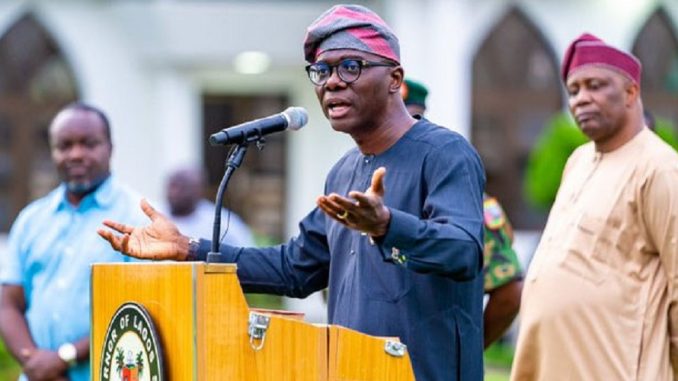Lagos State Governor, Babajide Sanwo-Olu, about a week ago, signed into law a bill establishing an agency with sweeping powers over corruption investigation and prosecution in the state. The bill, titled: “Lagos State Public Complaints and Anti-Corruption Commission Law”, was sponsored by the executive. When it comes into operation it will take over the investigation of all anti-corruption and financial crime cases involving the finances and assets of the state government.
The commission shall have exclusive powers to investigate corruption and financial crimes related to the state government. Such cases include corruption and financial crimes, abuse of office, offences relating to administration of justice, obtaining by false pretense, cybercrime, fake news, interception of emails and fraudulent dealings with debtors.
- Media Trust, Nigeria Health Watch partner on solution-based reportage
- Insecurity: Too much tension, confusion in the land — NSCIA
The law also empowers the agency to take over cases relating to Lagos from agencies like the Economic and Financial Crimes Commission (EFCC) and the Independent Corrupt Practices and Other Related Offences Commission (ICPC).
It is no coincidence that the law was enacted at a time when the National Leader of the ruling APC, Bola Tinubu; Minister of Works and Housing, Babatunde Fashola; Gov Akinwunmi Ambode and all former governors of Lagos State are under EFCC investigation.
Tinubu, who nurses a presidential ambition, is among others alleged to have enriched themselves by using a tax consultancy firm, Alpha Beta, to divert Lagos funds and commit tax evasion to the tune of N100bn. The EFCC in November, 2020, wrote a letter to the Code of Conduct Bureau (CCB) asking it to make available the asset declaration forms of Tinubu and Fashola as part of a wider probe.
Similarly, the EFCC, in 2019, began investigating Ambode for alleged N9.9bn fraud. Also, the Speaker of the state assembly, Mudasiru Obasa, who presided over the passage of the bill, was himself accused of mismanaging public funds running into hundreds of millions of naira. He was questioned by the EFCC in October, 2020, and his accounts were frozen by a court.
The world has come a long way since October 31, 2003, when the General Assembly adopted the United Nations Convention against Corruption. The central goal of the convention is to promote international cooperation in the fight against corruption because it has international dimension.
It is argued that coordination between governments and businesses will improve accountability and ethical practice towards a saner society.
Since then nations have set up anti-corruption agencies, formed regional and international bodies while efforts are continually being made to build and strengthen institutional capacity to deal with changing phases of corruption.
In line with the goals of the convention, Nigeria set up the EFCC and the ICPC. Despite the narrow nature of progress, it cannot be denied that the EFCC has achieved some level of progress. Some former governors, ministers and heads of agencies and corporate organisations were prosecuted for corruption and billions of naira in looted funds recovered at home and abroad. The agency has also secured conviction against internet fraudsters and recovered billions of naira which it returned to victims.
Corruption has negative effect on social, political and economic development of nations. That is why in other climes it is punished with long prison terms or even death to serve as a deterrent.
It is not news that states in Nigeria are run like private estates, so it is hard to imagine if any high level official can be investigated not to talk of being prosecuted under a state law such as the one enacted by Lagos State. It boggles the mind that anyone or state would settle down to draft such a law, which from all intent and purpose, appears to be aimed at shielding certain individuals from investigation and prosecution for corruption related cases. There is palpable fear that many governors with nimble fingers will replicate such law in their states if Lagos succeeds with it. Such action will not only be a major setback for the anti-corruption fight, but will make Nigeria a laughing stock in the comity of nations.
Therefore, the law enacted by Lagos State is a retrogressive, ill thought-out and self-serving piece of legislation and should not be allowed to stand.

 Join Daily Trust WhatsApp Community For Quick Access To News and Happenings Around You.
Join Daily Trust WhatsApp Community For Quick Access To News and Happenings Around You.


